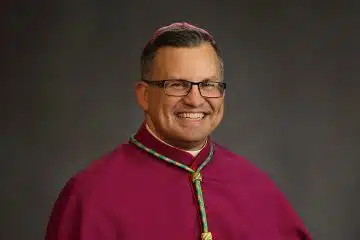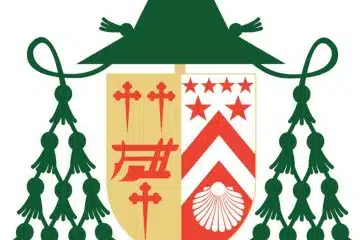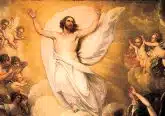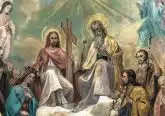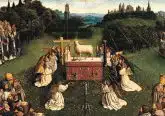Original Shame Part I
As we have been exploring the nature and effects of original sin on humanity, it is now time to plunge into the reality of shame, with the help of Pope St. John Paul II. We could hope for no better guide. As a poet, pastor, philosopher and theologian, he reflected deeply on the experience of shame. In Theology of the Body alone, he used the term “shame” 136 times and another closely related term 33 times. He also wrote an extensive reflection on “the metaphysics of shame” in his prior book, Love and Responsibility. Let’s see what we can learn from his insights.
The pope took Genesis 3:9-10 as his starting point. “The Lord God called to the man and said to him, ‘Where are you?’ And he said, ‘I heard the sound of you in the garden, and I was afraid, because I was naked, and I hid myself.’ John Paul II saw our first parents’ new impulse to hide from God and from one another because of their perceived “nakedness” as evidence of the birth of shame in their hearts. He described this shame as a “boundary experience” because it demarcates original man and historical man, now affected by original sin (TOB 11:3ff).
It is important to clarify that original shame pertains not merely to physical nakedness. According to John Paul II, “‘Nakedness’ does not have only a literal meaning: it does not refer only to the body” (TOB 27:2). After all, God sees not only the body but also the depths of man’s heart. Indeed, our first parents were ashamed before God in part because they perceived the loss of harmony within them. They perceived their lack of full self-possession due to sin. Their interior life is now marked by disharmony and conflict.
Furthermore, because of original sin, the visible world is no longer docile to man’s authority but rebels against him. The forces of nature now threaten man, and his work to cultivate the world is marked by suffering and toil. The “resistance of nature against man and his tasks” gives rise to “cosmic shame,” which expresses a “sense of insecurity” and an “awareness of being defenseless” in a now hostile world. “The end of this toil, of this struggle of man with the earth, is death” (TOB 27:4).
Thus, our first parents experience shame over the loss of harmonious self-possession and mastery over nature. But why would they—or we—wish to hide from the God who is love, who created humanity out of nothing, and who bestows wondrous gifts? It is because they have become “alienated from the Love that was the source of the original gift” of creation, “the source of the fullness of good intended for the creature” (TOB 27.2).
Through the influence of the tempter, man doubted God’s goodness and doubted that Love is the ultimate meaning and motive behind creation. By believing the tempter’s words and acting upon them, man turned his back on our loving Father and “in some sense cast him from his heart,” cutting humanity off “from that which ‘comes from the Father’” and leaving only “what ‘comes from the world’” in its place (TOB 26:4). “Shame touches in that moment the deepest level and seems to shake the very foundation of their existence.” It gives rise to an urge to hide from God showing that “a sense of fear before God has matured: a fear previously unknown” (TOB 27:1).
This fear is entirely different from the “fear of the Lord” praised in Scripture. The latter refers to awe and wonder in the presence of the all-holy God. It is closely related to reverence and is an essential and wholesome spiritual attitude for all of us to cultivate. Conversely, the fear that flows from original shame stems from doubting God’s goodness. If God is not pure goodness, then how can we let Him “see” us? How can we trust Him enough to let Him come to us at our worst moments?
I invite all of us to reflect on the many ways we, like our first parents, hide from God because, just as we struggle to see His pure goodness, we struggle to believe that in the face of our brokenness and sin, He could possibly continue to see good in us.
 Dr. Andrew Sodergren, MTS, PSY.D. is a Catholic psychologist and director of psychological services for Ruah Woods. He speaks on the integration of psychology and the Catholic faith. He and his wife, Ellie, have five children.
Dr. Andrew Sodergren, MTS, PSY.D. is a Catholic psychologist and director of psychological services for Ruah Woods. He speaks on the integration of psychology and the Catholic faith. He and his wife, Ellie, have five children.
This article appeared in the February 2023 edition of The Catholic Telegraph Magazine. For your complimentary subscription, click here.





